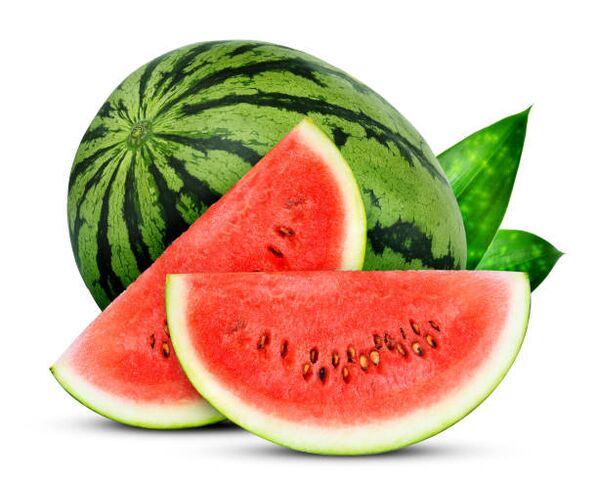Autumn is a bountiful time and the best time for a watermelon diet. Why is the watermelon diet good, you ask? Does it fit everyone? What is your peculiarity? Today I will reveal the secrets of the watermelon diet.
The watermelon diet is one of the most delicious mono diets, and is very suitable for watermelon lovers. It allows not only to lose weight, but also to improve the health of the entire human body. The watermelon diet is especially useful for obesity, insomnia, atherosclerosis, anemia, constipation, arthritis, gout, liver and biliary tract disease, and loss of strength.
The essence of the watermelon diet
Throughout the diet, you only need to eat watermelons. Nutritionists believe that 1 kg of watermelon should be eaten for every 10 kg of body weight, and watermelon should be eaten 5 to 6 times a day. However, I want to warn you that if the watermelon is too sweet, then weighing 80 kilos and eating in the proposed way (you have to eat 8 kilos), you can't lose weight, on the contrary, just gain it.
It is well known that 100 grams of watermelon contains 38 kilocalories, so with a daily requirement of 1500 kilocalories, it is permissible to eat a maximum of 4 kilograms of watermelon. I propose to choose the middle ground: with a weight of around 60 kilos (or less), it is allowed to eat up to 3 kilos of sweet fruit, with a weight of more than 70 kilos - no more than 4 kilos of fruit if the watermelon is very sweet.
You can lose weight up to two pounds a day on this diet.

If you've read my article: The Beneficial Properties of Watermelon, remember that watermelon contains soluble sugars (fructose, glucose, maltose, sucrose) as well as fiber and pectin fiber. They speed up the body's metabolic processes, help reduce appetite, remove excess fluid and reduce body fat. All of this contributes to weight loss. In addition, pectin lowers cholesterol levels and lowers blood sugar levels, removes toxic substances from the body and normalizes the intestinal microflora.
Be aware that before starting a watermelon diet, it is best to check your body's reaction to active watermelon use. To do this, consume 400-500 grams of watermelon per day, in addition to your usual diet, for 3-4 days. If you don't feel uncomfortable (flatulence, increased stools, heaviness in the abdomen), you can start.
Watermelon Diet Options
There are several options for the watermelon diet.
First breakfast: 150-200 grams of low-fat cottage cheese and 3 slices of watermelon.
Second breakfast: 1-2 slices of watermelon.
Lunch: 1 bowl of rice porridge (in water, but you can add salt) and 3 slices of watermelon.
Afternoon snack: 50 grams of low-fat cottage cheese and 1-2 slices of watermelon.
Dinner: 1 bowl of rice porridge (in water, but you can add salt) and 1 slice of watermelon.
This dietary option is due to the fact that rice sustains the intestine in a normal way (after all, 70% of watermelon is liquid), and curd, in the doses used in the diet, fully compensates for the loss of calcium with the active use of watermelon.
After going on a watermelon diet for several days, you can lose 3-6 kg, but to avoid unwanted complications, you need to get off the diet correctly. After the end of the diet, it is recommended to eat a certain way for 2 weeks: for breakfast - porridge with water (rice, buckwheat, oats) and a small amount of protein foods (cheese, cottage cheese, eggs); for lunch - lean meat, fish, chicken with vegetables, for dinner - watermelon. So, in 15 days, you can lose up to 8 pounds.
Characteristics of the watermelon diet
This diet not only helps you lose weight, but it is a young and beautiful diet. As a result of eating, the body is cleansed of toxins and radionuclides, the skin is younger and more elastic, fine wrinkles are smoothed, complexion improves, cellulite is less pronounced, hair gains a beautiful shine, nails strengthen.
But not everything is so perfect, there are contraindications to the watermelon diet.
Contraindications for watermelon diet
Watermelon pulp is a powerful diuretic, resulting in severe stress on the kidneys. The watermelon diet is prohibited for kidney stones as it can cause them to move and lead to kidney colic.
It is contraindicated in pyelonephritis, problems of the gastrointestinal tract, prostate.
For people with cardiovascular diseases, this diet can only be used after consulting the doctor, as it excretes potassium and sodium salts from the body, which are so necessary for the functioning of the heart muscle.































































